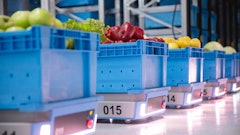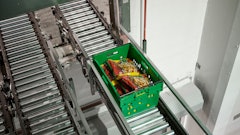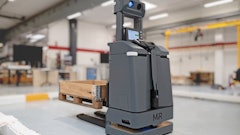When last we spoke (Cover Story, June 15, 2005) you were still the director of integrated logistics at Chef Solutions, Schaumburg, IL. At the time, you maintained that despite overall optimism regarding the shipment of food, you were greatly concerned about bioterrorism and the Food and Drug Administration’s and U.S. Department of Agriculture’s rules regarding them. Why is bioterrorism such a concern for you and where does this stem from?
Egan: As far as my concerns go, bioterrorism and the FDA’s food and drug guidelines go hand in hand. As shippers, all of us in the food industry need to have public safety as our highest priority. We have a moral imperative to provide the public with the safest products possible. The issue I have is whether or not we can put up a defense mechanism that is fool-proof, and, of course, the answer is no. There are just so many ways to get at our food supply and so many hand-offs en route.
We try to use trailer tracking, give our drivers cell phones, check employment records of people we hire, use cargo seals on our trailers and try to do everything we can, but every time we open the trailer doors we expose ourselves to a safety risk, to a possibility that someone with an evil motive can get something inside the trailer.
I’m also concerned that the government is mandating so much so quickly that the industry may not be able to recover. For ex-ample, the government has put in a requirement that we need to have fencing around all our facilities, and for a company like ours, that will require a $15 million investment.
What have you done to protect your company and products so far?
Egan: We’ve installed card access, with an RFID chip on a photo ID, at all entry and exit points for better security at all our facilities. We have elaborate food safety standards and programs in place and quality control specialists in all our facilities. We use safety seals on all our pre-loaded drop trailers. We will be expanding the use of cameras in our buildings and will be putting barbed-wire fences in at all our facilities. We do criminal background checks and drug screenings for all our employees.
But still, our U.S. food supply is very vulnerable to attacks, starting at the farm and the manufacturing plant all the way through the logistics network. There are a lot of holes that need to be plugged and unless the government starts providing some funding, it may be almost impossible to fully implement all that is required of us. Anything we do is a very expensive proposition.
The big thing in the industry that everyone is talking about right now is product tracking and traceability. What are you doing there?
Egan: Most of our carriers have some sort of global positioning system (GPS ) or cell phone tracking in their trailers, but it took us about a year and a half to get to that level.
As for our products themselves, the enterprise resource planning (ERP) system in all our warehouses is from SAP and it has a top-notch tracking module. We also do two mock recalls every year and have had very high success rates. The lot traceability that SAP has given us has been very effective for us since we implemented it about two and a half years ago.
What role do you see for radio frequency identification (RFID) in tracking and tracing products?
Egan: For me, the jury is still out as to whether RFID will be effective or even feasible. As a concept, it has great potential for improving food safety and security, but there’s a lot of data and the question is how do we get that data in a timely manner into the right hands so someone can act properly and quickly enough. What usually happens is that someone gets sick and then we go back and look at the history of the product, which is great for law enforcement but does nothing to ease the pressures on the food companies involved.
So what is the answer?
Egan: The safest route is for all of us as Americans to be more aware and to report any and all suspicious activities. We have to be good neighbors and good citizens and keep track of what’s going on around us. We need to use common sense. If there’s a tanker truck in a corn field, we have to question what it’s doing there and report it. We can throw billions of dollars at the problem, but I don’t know that we’ll be any safer. What I do know is that we’ll be a lot poorer.
From a shipper’s standpoint, what can be done?
Egan: We need to break down the walls between shippers, carriers, suppliers, retailers and the government and work together to have meaningful dialogue. There are real-world concerns about when our chain of responsibility for a product ends, but we can’t hide behind the legal veil of who’s responsible any more. Although we’re all playing on different teams, we’re all still playing the same game and in the end we will all have to benefit from good, common-sense policies.
Will you bring the same focus on bioterrorism to your new job at McCain Foods?
Egan: Most definitely. That has not changed.


























